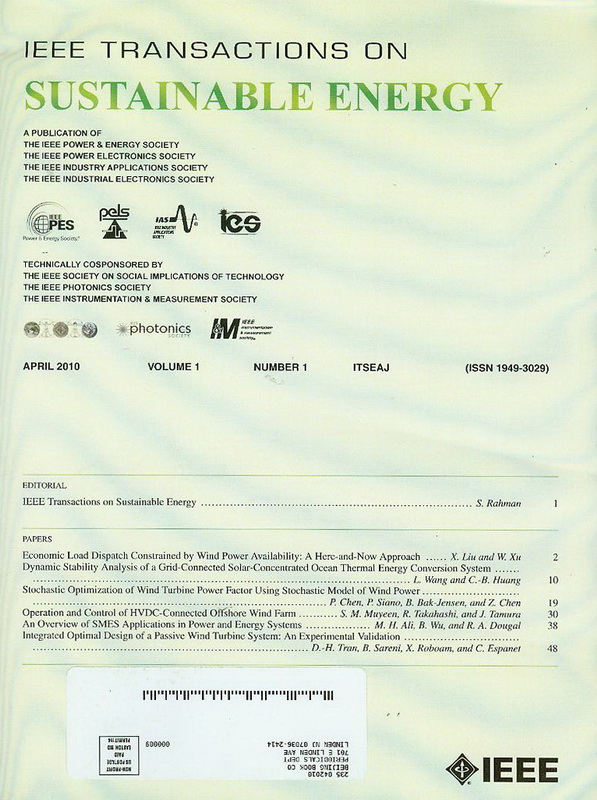Coordinated Planning for Stability Enhancement in High IBR-Penetrated Systems
IF 10
1区 工程技术
Q1 ENERGY & FUELS
引用次数: 0
Abstract
Security and stability challenges in future power systems with high penetration Inverter-Based Resources (IBR) have been anticipated as one of the main barriers to decarbonization. Grid-following IBRs may become unstable under small disturbances in weak grids, while during transient processes, system stability and protection may be jeopardized due to the lack of sufficient Short-Circuit Current (SCC). To solve these challenges and achieve decarbonization, the future system has to be carefully planned. However, it remains unclear how both small-signal and transient stabilities can be considered during the system planning stage. In this context, this paper proposes a coordinated planning model of different resources in the transmission system, namely the synchronous condensers and GFM IBRs to enhance system stability. The system strength and SCC constraints are analytically derived by considering the different characteristics of synchronous units and IBRs, which are further effectively linearized through a novel data-driven approach, where an active sampling method is proposed to generate a representative data set. The significant economic value of the proposed coordinated planning framework in both system asset investment and system operation is demonstrated through detailed case studies.协调规划,增强高 IBR 穿透系统的稳定性
逆变器资源(IBR)在未来电力系统中的高渗透率所带来的安全和稳定性挑战已被认为是去碳化的主要障碍之一。在弱电网的微小扰动下,电网跟随型 IBR 可能会变得不稳定,而在暂态过程中,由于缺乏足够的短路电流 (SCC),系统稳定性和保护可能会受到威胁。为了解决这些挑战并实现去碳化,必须对未来系统进行精心规划。然而,如何在系统规划阶段同时考虑小信号和瞬态稳定性仍不明确。在此背景下,本文提出了输电系统中不同资源(即同步电容器和 GFM IBR)的协调规划模型,以增强系统稳定性。通过考虑同步机组和 IBR 的不同特性,分析得出了系统强度和 SCC 约束,并通过一种新颖的数据驱动方法对其进行了进一步有效的线性化,其中提出了一种主动采样方法来生成具有代表性的数据集。通过详细的案例研究,证明了所提出的协调规划框架在系统资产投资和系统运行方面的重要经济价值。
本文章由计算机程序翻译,如有差异,请以英文原文为准。
求助全文
约1分钟内获得全文
求助全文
来源期刊

IEEE Transactions on Sustainable Energy
ENERGY & FUELS-ENGINEERING, ELECTRICAL & ELECTRONIC
CiteScore
21.40
自引率
5.70%
发文量
215
审稿时长
5 months
期刊介绍:
The IEEE Transactions on Sustainable Energy serves as a pivotal platform for sharing groundbreaking research findings on sustainable energy systems, with a focus on their seamless integration into power transmission and/or distribution grids. The journal showcases original research spanning the design, implementation, grid-integration, and control of sustainable energy technologies and systems. Additionally, the Transactions warmly welcomes manuscripts addressing the design, implementation, and evaluation of power systems influenced by sustainable energy systems and devices.
 求助内容:
求助内容: 应助结果提醒方式:
应助结果提醒方式:


